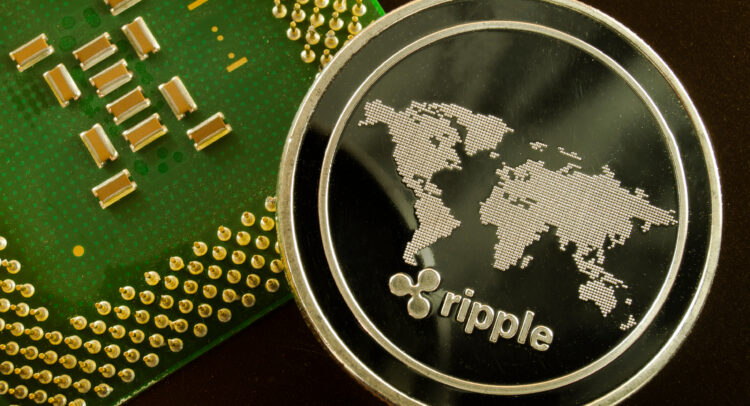Ripple (XRP-USD) just landed a major approval in the UAE — and it’s not just another checkbox on a licensing map. Dubai’s financial regulator has officially cleared Ripple’s RLUSD stablecoin for use within the city’s international financial district. But the real twist? That green light comes with a property twist, tying Ripple’s crypto product to one of the region’s biggest blockchain experiments: real estate tokenization.
Elevate Your Investing Strategy:
- Take advantage of TipRanks Premium at 50% off! Unlock powerful investing tools, advanced data, and expert analyst insights to help you invest with confidence.
RLUSD Enters Dubai’s Regulated Crypto Circle
On Tuesday, Ripple’s RLUSD stablecoin received the all-clear from the Dubai Financial Services Authority (DFSA). That means companies inside the Dubai International Financial Centre (DIFC) — one of the Middle East’s largest financial hubs — can now use RLUSD for things like cross-border payments, digital custody, and treasury operations.
The DIFC already has nearly 7,000 registered businesses, and it’s been tightening its crypto rulebook. Under its framework, only DFSA-approved tokens can be used in regulated services. Ripple’s stablecoin now joins that select club — along with Circle’s USDC and EURC.
Real Estate on the XRP Ledger?
The news isn’t just that RLUSD is legal to use. It’s that Ripple’s stablecoin is being woven directly into Dubai’s property infrastructure. According to the company, RLUSD will help power a blockchain-based system for recording property title deeds, led by the Dubai Land Department.
That’s a big swing. Back in March, the DLD announced a pilot project to tokenize real estate, aiming to move deed registration onto a public blockchain. Now, RLUSD becomes one of the tools that could enable real-world real estate transfers using digital rails.
Ripple said in a statement that it’s already working with regional partners like Zand, a digital bank, and Mamo, a fintech firm, to bring RLUSD-powered payment systems to life.
Why the UAE Is a Key Crypto Battleground
Ripple’s global expansion has leaned heavily on jurisdictions like the UAE, where clarity on regulation meets appetite for innovation. As Reece Merrick, Ripple’s regional managing director, put it: “The UAE’s digital economy is vibrant and incredibly dynamic.” He added that demand for cross-border and custody services is only growing.
This isn’t just another crypto project chasing hype. Stablecoins — especially those approved by serious regulators — are quietly becoming the backbone of real-world asset transactions, especially in markets where dollar exposure is valuable and trusted rails are scarce.
Ripple’s Global Reg Framework Keeps Growing
The Dubai approval is part of a larger puzzle for Ripple. Just this past March, the company secured a full operational license from the DFSA to operate in the DIFC. It also got RLUSD approved by the New York Department of Financial Services (NYDFS) in December, giving the token rare dual recognition.
So while stablecoin headlines tend to focus on flashy market caps, RLUSD’s momentum is clearly regulatory. Ripple isn’t aiming to be everywhere — it’s aiming to be where it matters.
At the time of writing, XRP is trading around $2.21. It’s now the third-largest crypto by market cap behind Bitcoin and Ethereum, holding steady at $215 billion.
Why does that matter here? Because RLUSD might be Ripple’s stablecoin play, but XRP is still the fuel behind its broader ecosystem — especially when it comes to real-world use cases like payments and tokenized property.

















